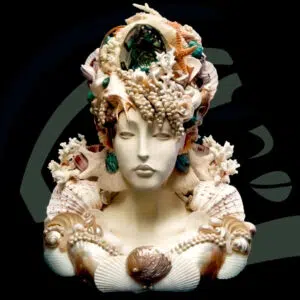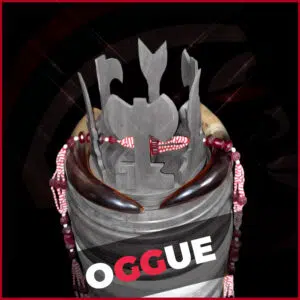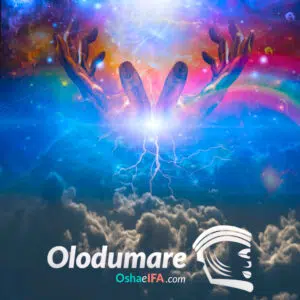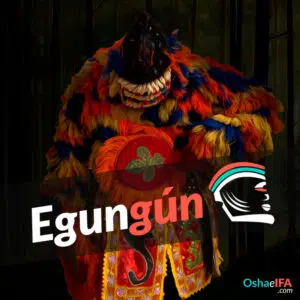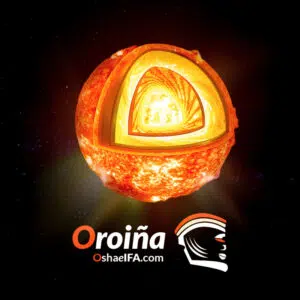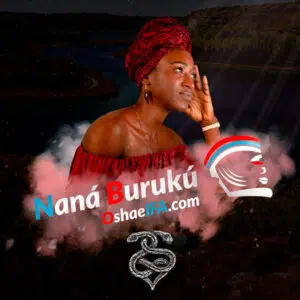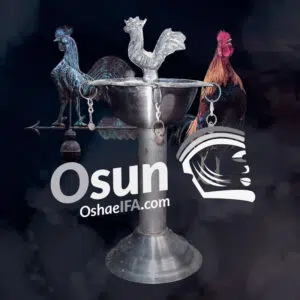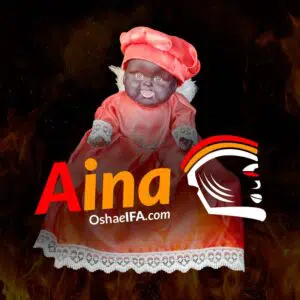Ogbe Tua: Meaning, Tips, Sayings, Patakies and More
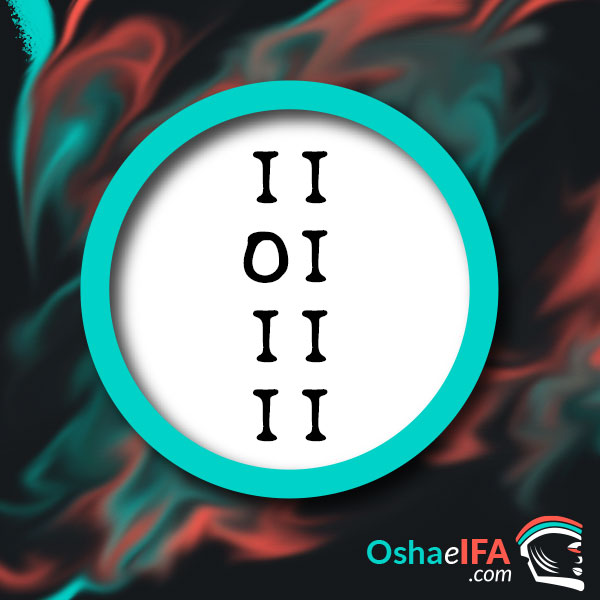
Ogbe Tua or Ogbe Otura, tells us about the effectiveness of divination with the okpele and the babalawos' hat, Odu of Ifa that invites us to get away from the path of pride, says that the earth rots but never dies. This sign of Ifa is number 28 in the lordly Order of Ifa.
Treatise of the sign of Ifa Ogbe Tua Nialara
The one that prosperity was coming his way, the one that the dance brought him enmity, the one that could not take the title of his father. Ifá was launched for Oduduwa's eldest son.
Other names of the sign Ogbe tua
- Ogbe Otura.
- Ogbe Alaara.
- Ogbe Tua nilara.
In the odu Ogbe Tua is born:
- The Okpele, where the Okpele was tied with a chain for the first time.
- Oro-Iña, the voice of the volcano, the most powerful of all the Ebora Manteca de cacaoshas.
- The secrets of Azojuano.
- Siclemia or Sickle Cell Anemia and blood diseases.
- The knowledge of the Sculptures.
- That the BabalAwós for the first time used Caps.
- The Hole that was opened for the first time.
- Afimaye, the shadow between Orúnmila and the Awó.
- On Sunday.
- The Ebó of the Iworos.
- Where the meat was smoked for the first time.
- At Ogbe Otura, the opening ceremony of the year is born.
- Where Shango eats Quail together with Olofin.
- In the Ogbe Tua sign, the two hands of Ifá were born.
- Eshu Agogoro.
- Here the sky was known.
It may interest you: Treatise of the sign of Ifa Otura Niko
Recommendations of the Ogbe Tua (Otura) sign:
- If Osobo is there, do something to the Egun first of all.
- Ogbe Tua sends out to get the I will.
- From white rooster to Ogún when this Ifá comes out in an Ituto.
- Celebrate your father's mass if he is deceased.
- Receive Azojuano or put on your necklace.
- Don't mourn the money you spend.
- Do not be blinded by your family and fulfill what you have pending or have promised.
- It must be scratched on a stick and have a casserole of garment and put something in addition to that garment that his Egun indicates that not even his Tata knows.
- You have to be a good mother, because here the children make the mother suffer a lot and can even come to hate their mother and be her worst enemies.
- In Ogbe Tua ni alara, the angel of painting is born, you must visit the churches frequently and delight in looking at the paintings
on the altars. - Make sure that when the children are of the required age, each one has his own, because here the 4 cardinal points are born where Shangó told his children, you take each one by his side from here as far as my sight reaches, there you will rule , because if not, she will never be queen.
- You must bring a gold garment to your godfather to wash, because this is a sign where you have gold garments.
- Your children should not wear your clothes or clothing.
- Dress in white as much as possible
- Eat rice as little as possible and if you do, wash it many times and add as much water as possible so that you can throw it away, because rice is your worst enemy.
- Be very careful going up and down stairs.
- Ogbe Otura recommends putting a lightning stone inside this Ikofafun so that it can reign.
Ogbe Tua Sayings:
- It has an advantageous position.
- He knows how to think.
- Dangerous leather.
- The earth rots but does not die.
- Whoever asks for a match, must first ask for a tobacco, otherwise he will leave with his candle without reward.
- You must give before you receive.
- I already drank, I already ate, the quail sings when it is full.
- An elder who spreads excessively loses all respect and prestige.
- Give one thing and take another.
- An arrow does not kill a thought.
Ogbe Tua bans:
- Do not raise other people's children.
- Do not have dogs in the house, because they steal your mind.
- For Ogbe Otura you cannot tell lies, because you can turn it into a truth and harm yourself.
- Do not raise your hand to any woman and less if it is a daughter of Oshún.
- Don't be proud and get a monthly blood check.
- Do not graze on cycles or motorcycles to avoid accidents.
The odu of Ifa Ogbe Tua speaks:
- That the children eat the mother.
- From disease of the blood and brain.
- That children are disobedient.
- Here Olofin blessed the Monkey, the cat and the Mouse.
- Of the difference between mud and sand.
- Ogbe Tua ni alara, disease spread here on earth.
- Of aggression between father and son.
- Here Orúnmila turns his back on Awó, and on the great shadow that exists between Orúnmila and Awó. This was where Oshún cursed Orúnmila for mistreatment.
- That the earth was opened for the sins of humanity.
- To celebrate masses for his father if he is deceased.
- Traveling abroad with a relative of his and that he will marry there.
- That you don't have dogs in the house because they steal your mind.
- Here was the pact between Oro-Iña and Dada.
- Of disobedience of the children.
- Of great fortune that is on its way.
- In Ogbe Tua he talks about insomnia.
- Gossip of entanglement that it carries and that it brings.
- From a person who is not legal or with his friends or with anyone.
- Talk about setbacks, upsetting things and restlessness.
- Of litigation or situations by problems of terrain in the field.
- Ogbe Tura talks about a scare that you experienced or may experience, thank Olokun.
- Surveillance and job loss.
- Of problems with his nature.
- Of running blood among the family for loss of money.
- That you are spiritual and can be half unity, you have to do Santo and ask if it is necessary to scratch.
- Of rape, experienced among relatives, corruption within the family.
It may interest you: Ifa Ogbe She Sign
Says Ifa Ogbe Tua
When Ogbe Tua manifests in Igbodun, the person should be advised to make sacrifice so that he can deflect the danger of losing his children in childbirth. If this is already happening to him, he should be advised to make the same special sacrifice or Ono de Ifá that his patron Odu did to stop the incidence of infant mortality. However, he should be advised never to lead a life of wandering around because luck will come from settling into his home with his family.
If Ogbe Otura manifests himself in ordinary divination for a reckless adventurer, he should be advised to have his own Ifá, if he does not already have one, and to settle in and settle in his home.
In ordinary divination (Ogbe Tua ni Alaera), the person will be told that he or she has had some of their most valuable items stolen. He or she must have the help of a skilled Ifá priest to make the sacrifice, using the special enchantment intended for ESHU so that the thieves return what they stole. He or she must abstain from mutual assistance or financial contribution work for a minimum of 3 months. But if OGBE Otura is your patron sign, he or she should refrain from performing.
When this Odu manifests himself in divination, the person will be told that he has enemies stalking him and that if he makes sacrifice to ESHU, he will defeat his enemies.
Prayer of the Odu Ogbe Tua:
Ogbe Tua mofou sesi adifafun oluwo a lode mofou sesi adifafun Ayapa Tiroko lole nifa Hey Oduduwa mowale yere Olofin.
Ogbe Tua's Ebbo:
Ogbe Otura's work for memory.
Chicken head, cocoa butter, husk, prayed Osanyin herbs. It is crushed and wrapped in cotton sheets and every day a little is put on the head.
Work for memory.
Iyefá de Ogbe Tua, cocoa butter, fresh cotton buds, 2 white doves, with the doves the head is requested, the blood must fall on the plate that contains the other crushed ingredients, then with the plate it is made into a ball and from time to time a little is put on the head.
Ogbe Tua Ebo for pregnant women
A chicken egg smeared in honey is passed to the woman on her bare belly saying: Oshún, just as you eat chicken and it lays eggs and raises chickens, so this woman wishes to have her son safe and sound.
Note: this work must be done by Apetebí. Afterwards, the chicken egg is lined in yellow cloth and Oshún is put on the days he takes and he is given the path he takes.
Ogbe Tua ni Alara perfume to conquer a woman
Basil smoke, toasted hay, holy water, orange blossom water, Oshún water and dry wine, it is added in fine perfume.
Ogbe Otura Ifa from:
- Damn.
- Travel.
Ogbe Tua Notes:
- Abuse, here Oshún cursed Orúnmila for the mistreatment he gave him.
- That the Awó dies alone.
Herbs (Ewe) of the Odu Ogbe Tua:
- Strenna White.
- Purple Strenna.
- Hazelnut.
- Eucalyptus.
- Basil.
- Cockroach.
- Licorice.
- Baobab.
- Lantern.
- Ashibata.
Meaning of the Oddun Ogbe Tua
Ogbe Tua Osobo Iku
- Be careful raising your hand to a woman.
- Do something to the Egun first of all.
Ogbe Otura Osobo Arun
- Cyclemia or Sickle Cell Anemia is born.
- Beware of diseases of the blood and brain.
- Here disease was spread on the earth.
- He suffers from insomnia.
- Talk about problems in your nature.
- Do something to the Egun.
- Ogbe Tua is of loose blood, wounds take time to heal, if he is neglected he can lead to Leukemia.
- Ogbe Tua Nilara irrevocably suffers even at the end of his life from blood sugar (Diabetes).
- Take blood grass and sassafras, the latter if you are not hypertensive because it raises blood pressure.
- Take offerings to Saint Lazarus.
Ogbe Tura Osobo Ofo
- Talk about memory loss.
- Talk about memory loss.
- Talk about job loss.
- Loss of money in the family.
- Do something to the Egun.
Ogbe Tua Ni Alara Osobo Eyo
- Here the children eat the mother, are disobedient and kill her based on annoyances and bad times.
- Talk about the difference between mud and sand.
- He speaks of mistreatment of women, so a great tragedy and even death are sought.
- All kinds of sins are committed.
- He talks about gossip that he carries and brings and tragedies can be caused.
- He talks about a person who is not legal with anyone, and that can cause him problems.
- It speaks of a dispute or lawsuits over a problem of a piece of land in the field.
- Tragedy where blood runs between the family for loss of money.
- A great scare happened or may happen, thanks to Olokun.
- Do something to the Egun.
Ogbe Tua Ire Ariku
- Thanks to Olokun.
- Talk about big fortune on your way.
- Send them out into the street so that they can find their I will.
- Receive Azojuano to free you from all evil and bring you prosperity.
- Don't mourn the money you spend so you don't fall behind.
Ogbe Tua ni Alara Ire Ashegun Ota
- Do not be dominated by family or other people and do what is pending.
- Maferefun Azojuano Put a bottle of brandy in Ogún.
- Feed the Egun.
- Put an arrow behind your front door.
- Avoid tragedies, do not go to the Plaza these days.
- Bring attributes to Saint Lazarus.
Ogbe Tua Ire Kirin Kirin
- This Ifá talks about a trip abroad and that he will marry there.
You can read: All about OGGUN, the god of Iron
Ogbe Tua Ni Alara Ifa Traditional
OGBÈ ÒTÚRÁ
Emó nií forí gbon nini jáko
Òyà níí kó rùmùrùmù wodò
A day fún Àárò
A bù fun Alé
Wón ní kí Àáró ó rbo
Wón ní kí Alé náà or ru
Àárò rbo
Alé náà or gbéyìn
Béyán bá wà no oko àárò
yóó sisé
Yóó lobìnrin
Níí dale kokooko
Wón ní Emó níí forí gbón nini jáko
Òyà níí kó rùmùrùmù wodò
A day fún Àárò
A bù fun Alé
Àárò rèé or
Alé nì n bull
Bálé bá sunwòn
I did not.
Ifá says that good things come for this person. However this person is destined to have his fortunes towards the end of his life. He should not faint because of this, as he had been destined to have wealth later in life.
He should only sacrifice for old age.
This is the Emó rat that uses its head to brush off the wet grass on the farm.
It is the Rat Òyà that enters the river roughly
They were the ones who made divination for the (Alba).
They also guessed for the (Twilight).
They told Alba that he should make a sacrifice
They told Twilight to offer the sacrifice as well.
The Dawn made the sacrifice.
The Twilight was not excluded.
If one is at the dawn of his life.
He will work
He will marry
This will last you until your Twilight days.
They said This is the Emó rat that uses its head to brush off wet grass on the farm.
The Rat Òyà enters the river roughly
They were the ones who made divination for the (Alba).
They also guessed for the (Twilight).
This is my dawn.
I pray for my twilight.
If my twilight is perfect.
I will make wealth.
Pataki of the Ogbe Tua sign:
When Ogbe Tua was looking for longevity.
URANKE MI LAWÓ LI GONRI, OROKO LOKPOKO, AWÓN MEJI MEJI, LONDIFA-FUN ARIKU.
Ureke (divination rod) and Oroke (flying brush or horsetail) were the two ORÚNMILA servants who divined to achieve longevity when he was leaving Heaven to come to Earth. He was told to make sacrifice with a container of wine, rooster, machete, rat and fish and a bag of money, in order to prosper, as he would have to walk on a bumpy road. He made the sacrifice. Some of the wine was prepared in a small container, with medicine for him to drink.
He was born in the home of OGBE OTURA, who had a son before. Although his wife had given birth to several children, they died at birth.
Longevity (Ariku) had gone to the Palace of OLORDUMARE to appeal to make a profit in the home of Ogbe Tua, because he felt compassion for not having children.
The wife became pregnant and he went to see ORÚNMILA by divination, to see what to do with his future child. He told him to make sacrifice with two snails, rooster, pigeon, fish, rat, chain and white cloth. He made the sacrifice. The liquid of the snails, the blood of the pigeon and the crest of the rooster, were used for the necessary medicine. A part of this was used in preparing a talisman and a magic girdle (akpalode).
ORÚNMILA told him that the son should be called Ariku. He had to tie the magic belt around the child's waist, for 7 days after birth, and the talisman put on his neck until he grew up.
He made the sacrifice indifferently, as he was used to losing his children. At nine months, the wife gave birth to a boy. On the seventh day, a ceremony was held in which they named him Ariku, gave him the belt and the talisman. They told him that his wife would get pregnant after her first period and that she would be a female, and that she should be called Omotade.
They told him to make sacrifice again before the second son with: a rooster, dove, scimitar (curved saber) and also with miter, white cloth and cowries to prepare medicine. He made all the materials and the medicine was prepared and tied to the little ones as if it were a talisman.
Three months later, his wife became pregnant and gave birth to a female, named Omotade.
In accordance with the command of the Ifá priest, the medicine was kept under the child's pillow, and the talisman was placed on his neck. They told Ogbe Tua that Heaven had cleared his way with his special Ifa Ono for his children and that he would live to a mature age.
He began to have children and his complacency began to neglect his obligations to his family. He became a musician, he was present everywhere, dancing alongside the divining priests. He distanced himself from his wife, who could not get more pregnant.
Ariku grew up without proper parental care, began to misbehave and fish in murky waters. As he had been warned in Heaven, he became bellicose, fighting with everyone.
Seeing the change in his life, it was by divination, where they recommended that his behavior would endanger his life and that of his children. The only solution was to return home and settle in with his family, after making sacrifice.
He had to give Eshu a goat, serve his Ifá with a goat and refrain from walking around. Since he was homeless, he settled in a dilapidated building. Ariku was advised to attend his father's Ifá and invite his father to return home, so that Ariku could prosper as he had been told in Heaven.
Special sacrifice (Ono de Ifá) of the Odu Ogbe Tua, which had to be adequately prepared, for fear that the life of the subject would not be affected or settled.
When Ogbe Tua went wrong
On this road is where Ogbe Tua did everything wrong, to such an extent that he was on the verge of misery and destitution, in this state was where Orúnmila was and he told him to make ebo with well-cooked malú, a gourd of wine red wine, another of dry wine, another of oñí and another with omí and that he would take it to the middle of the mountain and put it at the foot of a bush of Jagüey and Ogbe Tua did so, Aggayú and Azojuano who were there when Ogbe Tua arrived with the ebó, they were the ones who received them and told him to take a bath with Otosi, Okuma, Baría, Framboyán and Jagüey and to add some oti to the bathroom and to gather a bit of those sticks and wrap it in a piece of fruit that with that would overcome the difficulties of life.
Note: This Osanyin in addition to the Aye that he takes, on Fridays he is fed with dry wine and oñí, the eyebale
That he takes is given every three months, that is, in the year he is fed 4 times. The eyebale can be
gallo, guinea or Ayakuá.
Eshu by Ogbe Otura
Eshu Alamibara
It is made with a cedar doll, which has a hole in the head.
Charge: a piece of bone from Egun's head is inserted into the head of the doll., Game deashe (eru, obi, kolá, osun naború, obi motiwao, aira, gold dust, dust head of Gavilán, root of moruro , from jobo, from atiponlá. All this is requested on the board with the Odus of Eshu-Elegba and then the secret elements are added to load the doll. The load and the doll are given a black dove, and the head , the legs and the heart are added to the load.
Eat: Jutía chiquita.
If you want to learn about the Orishas you can read:

